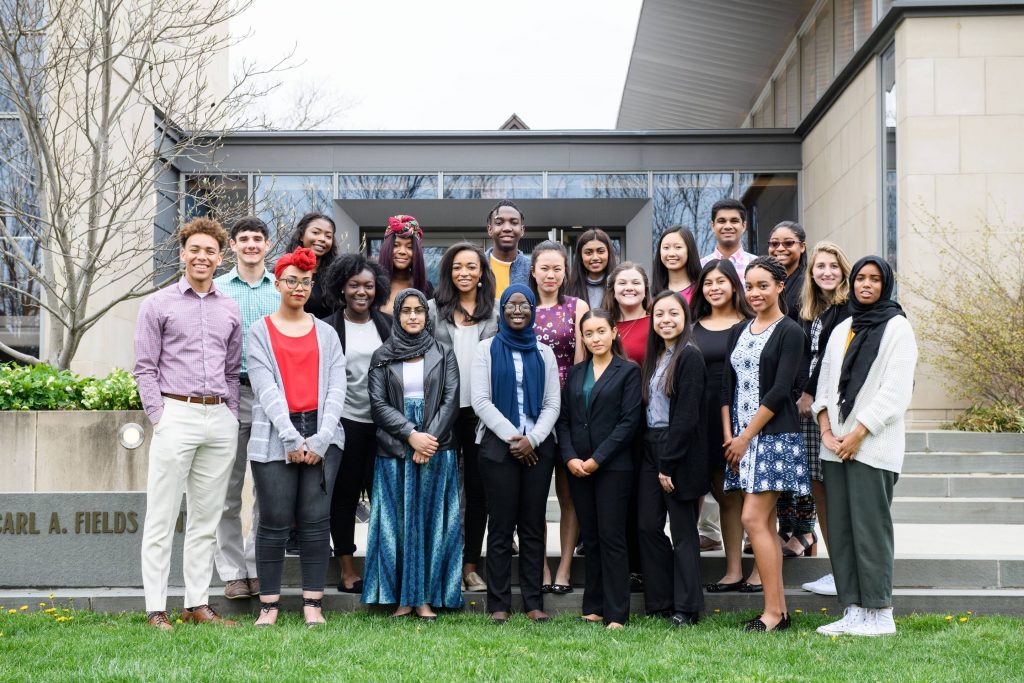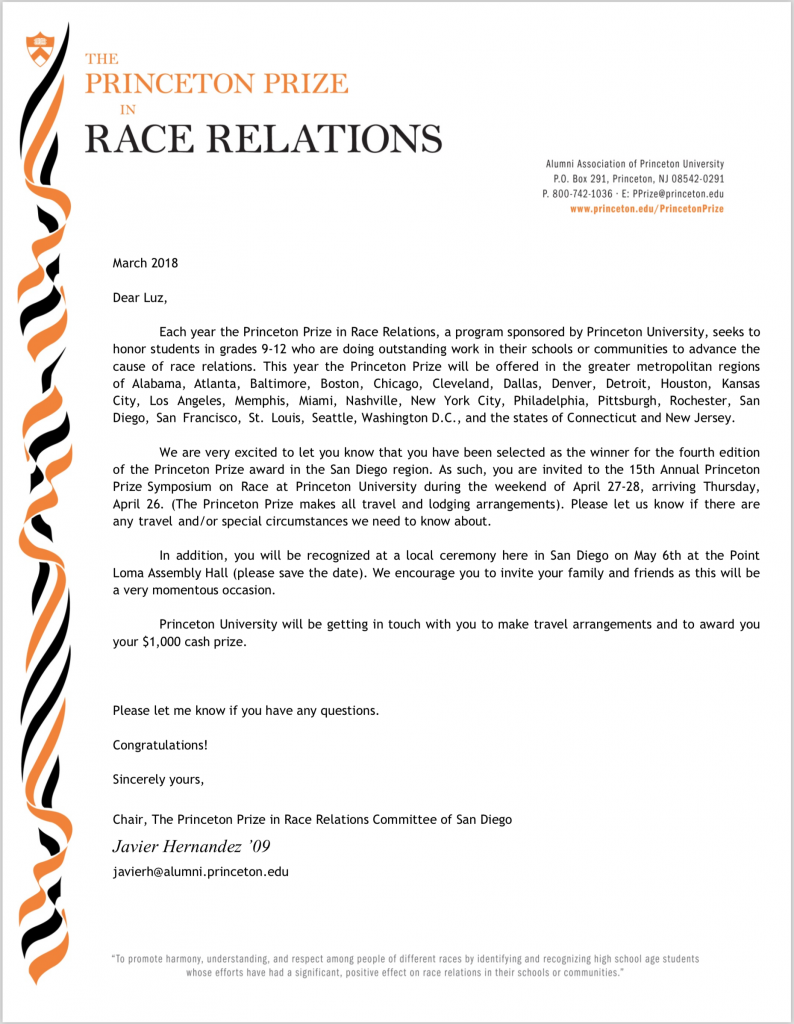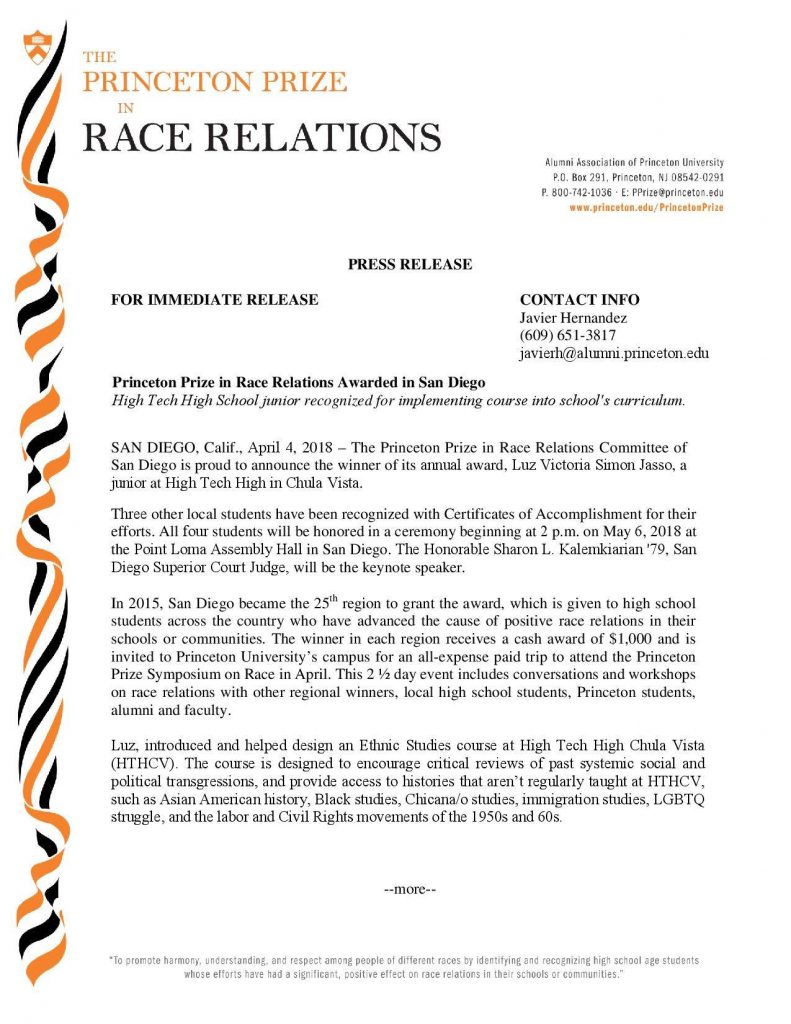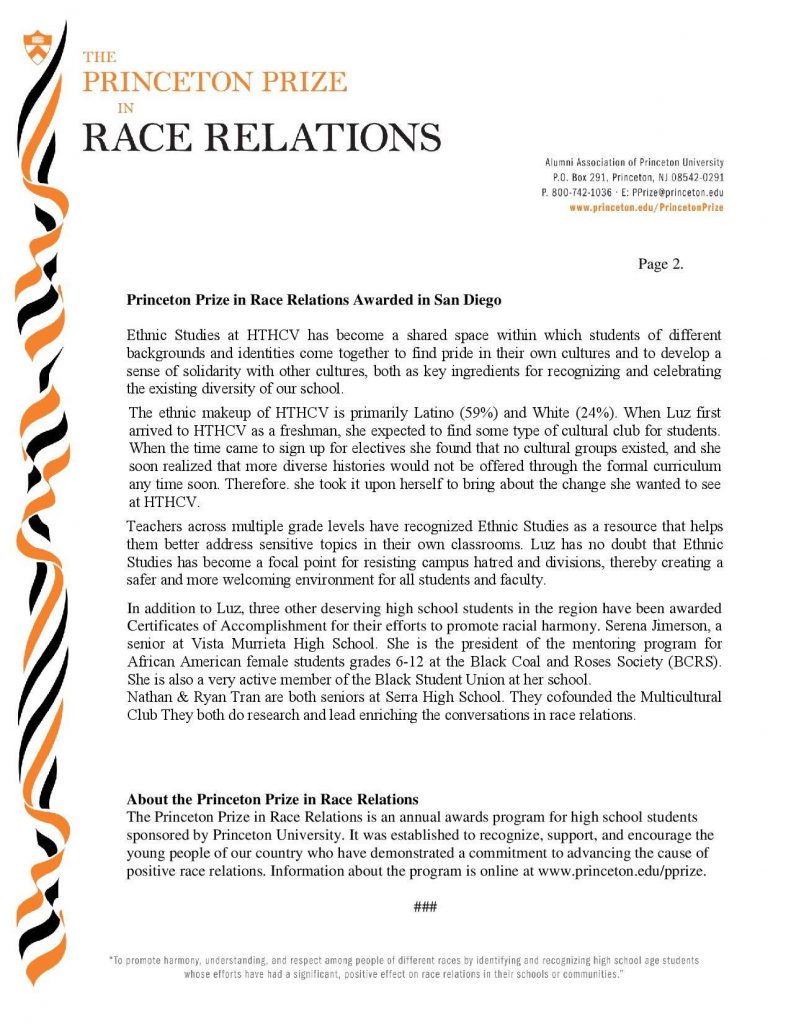On April 27 and 28, 2018, I participated in the Princeton Prize Symposium on Race that took place on the Princeton University campus in New Jersey. This trip was included in the award I was given for my work in helping introduce an Ethnic Studies elective course at my school, HTHCV.
The weekend I spent visiting Princeton University was amazing. The relationships that I developed with young people from all over the nation touched my heart and reaffirmed the value of my community work. I saw my own passion and dedication reflected in each of unique projects shared by the other prize winners. When we talked about why we do the work that we do, I felt the love I had was also being shared with me. Never before had I experienced such pride in being a young activist scholar, and I know that we will be the generation to demand change and not be intimidated by the difficulties that will come from our work. Being at Princeton not only made me feel at home in a community of people, it made me feel as though I had also contributed something to the Princeton campus community and legacy.
Education has always been one of the most important things to my family. Both my parents are first generation college graduates, and they made sure that when the time came for me to start thinking about universities I knew that I had access to all the necessary resources to build upon their legacies of academic achievement and community service. They always wanted me to at least match what they had done. With this prize and through my visit to Princeton University, for the first time I was able to visualize myself attending an Ivy League school. I am truly grateful for having been chosen for this prize because it not only provided me access to a totally new experience, but my visit to Princeton has allowed me to expand my horizons in terms of what I see as being possible for in future.





